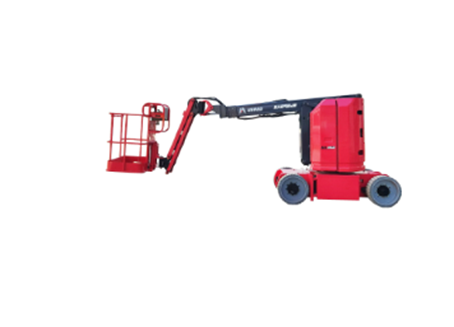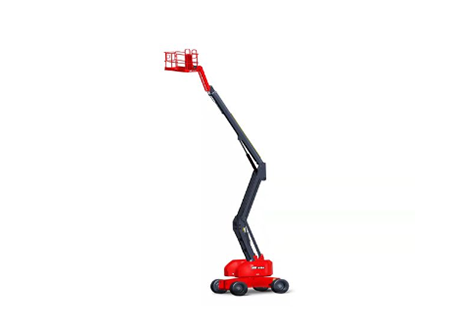Difference Between Electric and Diesel Articulating Boom Lift
Articulating boom lifts are essential equipment used in construction, maintenance, and repair of tall structures. These lifts come in different types, including electric and diesel articulating boom lifts. Both types of lifts serve similar purposes, but they differ in various aspects, such as cost, fuel efficiency, maintenance, and environmental impact.
Differences
In this article, we will explore the differences between electric and diesel articulating boom lifts in detail.
Power Source
Electric and diesel boom lifts have different power sources. Electric boom lifts use batteries to power the machine, while diesel boom lifts use diesel engines. The electric boom lifts run quietly and emit zero emissions, while the diesel lifts generate noise and emissions. However, diesel lifts can operate in any weather condition, while electric lifts require stable weather conditions.
Fuel Efficiency
Fuel efficiency is another significant difference between the two types of lifts. Diesel lifts are generally more fuel-efficient than electric lifts. They can run for several hours on a single tank of diesel, while electric lifts require frequent battery recharges, which can take several hours. Diesel lifts are ideal for long-term outdoor use, while electric lifts are best suited for indoor use.
Maintenance
Maintenance is another factor to consider when choosing between electric and diesel lifts. Diesel lifts require more maintenance than electric lifts due to their combustion engines. Diesel engines have more parts that can wear and tear, leading to frequent repairs and maintenance. On the other hand, electric lifts have fewer parts that require maintenance, making them more cost-effective and easier to maintain.
Environmental Impact
Environmental impact is a crucial factor when it comes to choosing between electric and diesel lifts. Electric lifts are more environmentally friendly than diesel lifts because they produce zero emissions. Diesel lifts, on the other hand, produce harmful emissions that contribute to air pollution. Therefore, electric lifts are ideal for indoor use, where air quality is crucial, while diesel lifts are better suited for outdoor use.
Cost
The cost of the lift is another factor to consider when choosing between electric and diesel lifts. Diesel lifts are generally more expensive than electric lifts due to their more complicated combustion engines. However, diesel lifts are more cost-effective in the long run due to their fuel efficiency and ability to operate in any weather condition. Electric lifts are cheaper to purchase, but the cost of batteries, recharging, and maintenance can add up over time.
Performance
Performance is another aspect where electric and diesel lifts differ. Diesel lifts have more power and can lift heavier loads to higher heights than electric lifts. However, electric lifts are more precise in their movements, making them ideal for indoor use, where space is limited.
Noise Level
Noise level is another factor to consider when choosing between electric and diesel lifts. Diesel lifts generate more noise than electric lifts due to their combustion engines. Therefore, electric lifts are ideal for indoor use, where noise levels are an issue.
In conclusion, both electric and diesel articulating boom lifts have their advantages and disadvantages. Electric lifts are more environmentally friendly, cheaper to purchase, and easier to maintain, but they have limited power and are best suited for indoor use. On the other hand, diesel lifts are more powerful, can operate in any weather condition, and can lift heavier loads to higher heights, but they are more expensive to purchase, maintain, and generate harmful emissions. Therefore, the choice between electric and diesel lifts depends on the intended use, environment, and budget.





